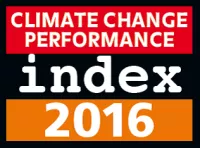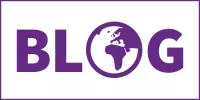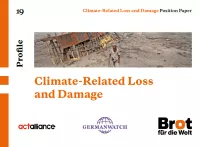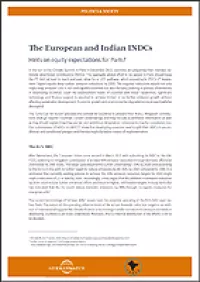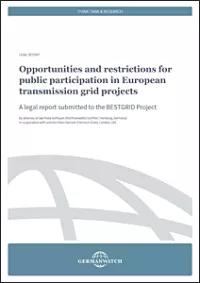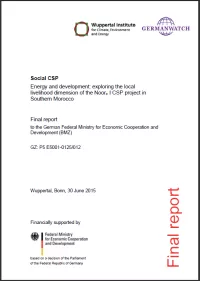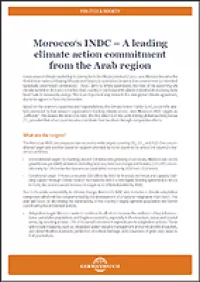Aktuelles (EntscheidungsträgerInnen)
Press Release
Indications for a turning point, but not yet a steady trend / Australia, Japan and Korea worst performers of all industrialized countries - a Press Release Germanwatch and Climate Action Network (CAN) Europe
The millennium started with a lost decade in terms of climate protection and, as indicated in the eleventh edition of the Climate Change Performance Index (CCPI), global emissions were still growing in 2013. For 2014, there are signs of a slowdown or even a halt of this trend.
Press Release
Germanwatch: Index results underline need for an ambitious Paris outcome that protects the most vulnerable
Serbia, Afghanistan and Bosnia and Herzegovina were the countries most impacted by climatic events in 2014. This is the result of this year’s Global Climate Risk Index, launched today by Germanwatch at the climate summit in Paris. "Heavy rains, flooding and landslides have been the defining hazards of the new Global Climate Risk Index", said Sönke Kreft, author of the study and Team Leader for International Climate Policy at Germanwatch. "Patterns of extreme precipitation is what people and countries will likely face in a warming climate."
News
Germanwatch, Climate Action Tracker and Climate Transparency Initiative publish G20 Report
The G20 make up two thirds of the world population, produce four fifth of the global economic output, and account for three quarters of global Greenhouse gas emissions. The average G20 per capita emissions are nearly 11 tons of CO2e. To keep global warming below 2°C, global per capita emissions need to be reduced to 1-3 tCO2e by 2050. The study "20 Climate Action – a turning point?" gives an overview on the current situation of the G20, as well as looking for trends and future plans.
Blogpost
Blogpost by Rixa Schwarz, October 2015
Laut des Beschlusses der UN-Klimakonferenz in Lima im Dezember 2014 sollen alle Staaten ihre nationalen Klimaschutzpläne im Laufe des Jahres 2015 vorlegen. Diese selbst gesteckten, nationalen Minderungsbeiträge, sogenannte INDCs (intended nationally determined contributions), stellen eine wichtige Grundlage für ein neues globales Klimaabkommen dar, welches in Paris im Dezember 2015 geschlossen werden soll. Kurz nach Ende der Frist am 1. Oktober, bis zu der die Staaten ihre INDCs vorlegen sollten, fand das INDC Forum in Rabat vom 12.-13. Oktober 2015 statt.
Publication
A Position Paper by Brot für die Welt supported by ACT Alliance und Germanwatch
In August 2015 an unusually intense monsoon caused devastating floods and landslides leading to the death of many people across Asia. Particularly in Myanmar, the rain destroyed hundreds of thousands of homes and streets and flooded rice paddies. In its most recent report, the Intergovernmental Panel on Climate Change (IPCC) warns that climate change will increase the duration and intensity of such and similar extreme weather events (IPCC 2014b). This will also lead to an increase in climate- related loss and damage (L&D), either as a result of extreme weather events or associated with slow-onset climate change, when glaciers melt, permafrost thaws and sea levels rise.
Publication
By end September 2015 most countries will submit their climate contributions (INDCs) for the new climate agreement to be adopted in Paris this December. The EU has already announced its contribution of at least 40 percent emission reduction by 2030 compared to 1990 levels. In India, the preparations for the INDC have been finalized, too. What is expected of the Indian INDC? What would be equitable?
Publication
Why the 5th Assessment Report of the IPCC falls short
Coming soon
Publication
A legal report submitted to the BESTGRID Project
This report describes the planning and licensing process for extra high voltage transmission lines under EU and national law regulatory framework. It is shown that the TEN-E Regulation 347/2013 introduces binding priorities (PCI, Projects of Common Interest) into national planning processes, shifting participation requirements to the EU level. The comparison between the German and the UK system of planning and permitting displays the different approaches: while the regulatory system is much more refined in Germany, granting much access and public participation, the participatory approach in the UK is more open, and access to justice is easier.
Publication
This study conducted by Germanwatch and the Wuppertal Institute explores how the social pillar of sustainability at the local level could be met in low-carbon energy projects. For this purpose, it evaluates the livelihood dimension of Concentrated Solar Power (CSP) technology based on a case study conducted on the 160 MW pilot CSP plant Noor I in Ouarzazate, Morocco.
Publication
A new wave of climate leadership is coming from the African continent. On 5 June, Morocco became the third African nation, following Ethiopia and Gabon, to submit its climate action commitment (or Intended Nationally Determined Contribution - INDC). With its timely submission, the host of the upcoming UN climate summit in 2016 also is the first Arab country to put forward its plan to transition its economy from fossil fuels to renewable energy. This is an important step towards the new global climate agreement, due to be signed in Paris this December.

